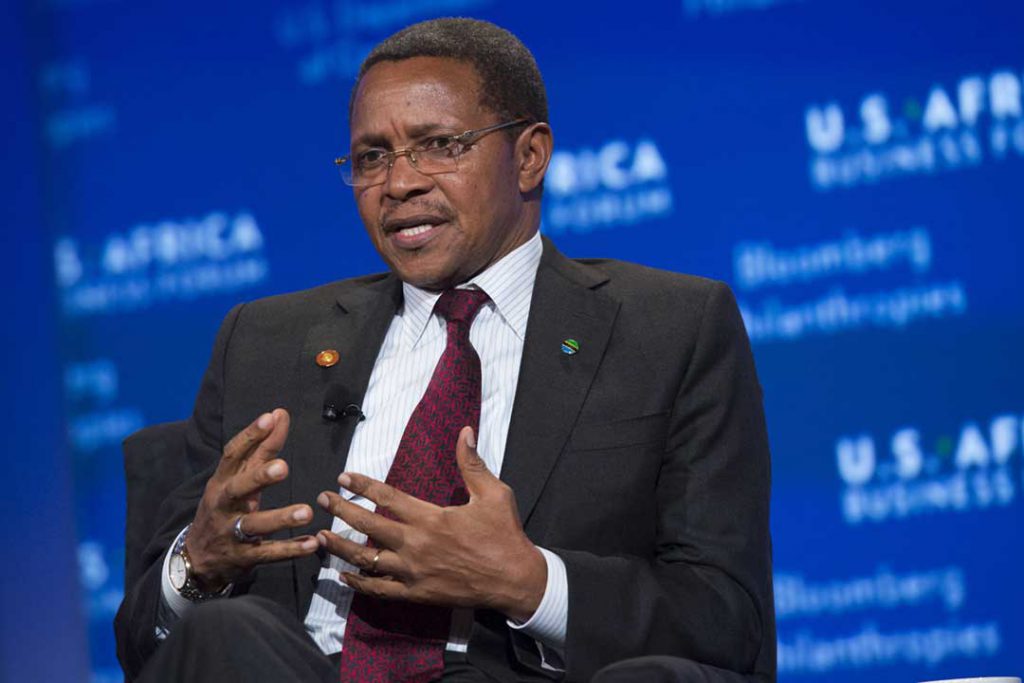
Amid the excitement and promise of April 1964 it seemed feasible that Tanzania, a new country born of the union of just independent Tanganyika and Zanzibar, could have a constitution within a year. That was the demand stipulated in Article VII of the eight Articles of Union signed between the combined nation’s founding fathers, Julius Nyerere of Tanganyika and Zanzibar’s Amani Abeid Karume. That document was short, running to barely 800 words, not enough on which to base the governing of a new country. It was designed as an interim measure. It stated bluntly that a commission must be formed immediately to pen a new constitution to rule the nation, and that it should be adopted “within one year of the commencement of the union”, meaning by mid-1965. In the end, it took 13 years. The 1977 constitution, with its legally mandated single-party state, imperial presidency and other amendments, still governs the country today.
That was due to change. A new constitution has been drafted, and was to go to a national referendum on April 30th. But in early April, President Jakaya Kikwete announced that the vote would be postponed because biometric voter registration was taking longer than expected. At the time this magazine went to print, no one, including the national electoral commission, was sure when the referendum would be held. What is certain is that Mr Kikwete, who stands down after his second term expires this year, wants to leave the new constitution as his legacy. His ruling Party of the Revolution (CCM) is also desperate for voters to approve the draft, because it favours this faction. But this latest draft has changed considerably from the one that sprang from a national consultation process conducted under the watch of Joseph Warioba, a former prime minister and attorney-general.
It was seen as reflecting the will of most Tanzanians. But the Constituent Assembly has amended it, creating much controversy. This body, a gathering of 640 politicians and civil society delegates, was supposedly balanced between government and opposition, but in reality it favoured the CCM. Mr Warioba’s draft, unveiled in December 2013, appeared ready to right the wrongs of its predecessor and leave one of Africa’s most important emerging resource-rich states with a modern structure of governance. His Constitutional Review Commission spent the second half of 2012 touring every district in Tanzania, holding 1,773 meetings and canvassing the thoughts of 1.4m of the nation’s 49m citizens. That led to a draft that separated the arms of legislature and executive by banning the appointment of lawmakers to ministerial posts. It mandated equal representation of men and women in parliament.
It cut back the number of legislators from 357 to 65, and proposed limiting them to three five-year terms. The list went on. Most controversially, however, it repeated earlier failed constitutional reforms that tried to change Tanzania from a two-tier to a three-tier system of government. This is where Mr Warioba’s charter foundered. Currently, Zanzibar, the island archipelago in the Indian Ocean off the mainland, has its own president, parliament and judiciary and manages most of its domestic affairs. That is the first tier. A second tier governs the mainland — what was formerly Tanganyika. It has an executive, a unicameral National Assembly and judiciary sitting in Dodoma, the national capital. It governs the mainland half of the federation in affairs that stand separate from Zanzibar’s, for example school curricula, agricultural policies and taxation.
It also manages an increasing number of joint matters for both Zanzibar and mainland Tanzania, including national security and finance. Judge Warioba’s and previous drafts suggested instead that both Zanzibar and the mainland should each have their own legislatures, executives and judiciaries. Added to this was a new, third tier: an over-arching parliament and executive that would sit separately, with its responsibilities limited but covering genuinely national interests, such as approving international treaties. By virtue of the ruling party’s majority on the mainland, the CCM controls the National Assembly and thus holds sway over many important national decisions, leaving both opposition parties and Zanzibaris feeling like bit players.
With oil and gas exploration reporting promising early findings, including in the waters between Zanzibar and the mainland, deciding the real level of autonomy between the devolved branches and the centre is of increasing importance. Confusion could drive away investors. “Warioba’s draft was a legally sound shopping list of the best ideas, including completing the idea of devolution of power across a three tier system that most Tanzanians feel is the most equitable,” says Nick Branson, a senior researcher at the Africa Research Institute in London. “What the Tanzanians will in the end have before them to vote on will not quite be that.” Instead, the Constituent Assembly, driven by the ruling party’s near majority of its 640 members drawn from the national assembly, Zanzibar’s own parliament, a cohort chosen by the president, and others, began dismantling Mr Warioba’s recommendations.
They bulldozed any proposals that appeared to curtail the power of the mainland over national matters, or the power of the ruling party. In the words of one analyst who is not authorised to speak freely, “the views of Tanzanians and legal experts were no longer the priority; it was short-term political expediency that ruled.” Frustrated opposition delegates eventually walked away from the process in April 2014. Even Mr Kikwete intervened and tried to suspend the Constituent Assembly’s deliberations, worried that his own party’s hijacking of the otherwise “impeccable” Warioba draft, in the words of the analyst, would stain his legacy. The assembly’s chairman, Samuel Sitta, a CCM stalwart, cried foul, saying he was immune from presidential influence. He made sure the draft was amended according to the ruling party’s wishes. “The people’s constitution … was rejected,” says Lutgard Kagaruki, executive director of the Tanzania Tobacco Control Forum, an influential civil society group.
“The constitution as it is now proposed is their own property as leaders. It protects their rights and privileges and not ours.” Under the amended draft favoured by the ruling party, members of the national parliament swelled in number once more, to 390, as did cabinet ministers, from 15 to 40. Measures to allow citizens to recall their representatives disappeared. Strict eligibility requirements for legislators and civil servants were loosened. Taken together, it was easy to conclude that the amended constitution was set up to perpetuate political patronage and reward. Debate over the constitution also allowed for politically-driven religious divisionism. Christians, dominant on the mainland, argued that Muslims from Zanzibar were given too many seats on the Constitutional Review Commission, which drew up the initial Warioba draft. Muslims, for their part, complained that they hold fewer than 6% of National Assembly seats, despite comprising perhaps 45% of the population.
The religious aspect to the debate has raised temperatures, with newspaper editorials and faith leaders voicing fears that tensions could spark pockets of violence during or following the referendum, when it is finally held. Diplomats and security analysts reported that the chance of serious problems was low, and the anticipated disruptions were part of political efforts by each side to galvanise their supporters. In large measure, violence is unlikely because the majority of ordinary Tanzanians seem tired of the process, and certain that its outcome will have little bearing on their day-to-day lives. Turnout to the referendum is likely to be below 40%, analysts predict. “This country belongs to the politicians, especially from CCM, who can do whatever they want,” says Eliza Guti, 19, a mobile money transfer agent in Dar es Salaam, the country’s commercial capital. “I will not register to vote because it’s a waste of time. The ruling party will never concede defeat.”



